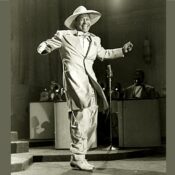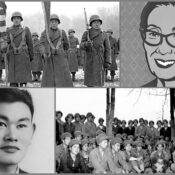George Washington was a man of exemplary character. Yet, while we recognize him as the first President of the United States, few are aware of how Washington’s earliest writings influenced his personal development. As a handwriting exercise when he was 14 or 15 years old, the future Founding Father copied a set of principles first compiled by French Jesuits, which were later translated into English by Francis Hawkins in the 17th century. Beyond a school exercise, these principles served as a code of conduct by which Washington aspired to live his life. Rules of Civility and Decent Behaviour in Company and Conversation details these 110 specific protocols for developing strength of character and social graces.
In today’s often contentious, polarized society, the core principles that influenced young George Washington appear as relevant as ever on the eve of the 250th anniversary of the adoption of the Declaration of Independence and the founding of our nation.
For Washington, The Rules of Civility provided a means of navigating the higher echelons of society, particularly after his education was curtailed at age 11 upon the death of his father. Knowing the rules of what society considered appropriate behavior helped facilitate young Washington’s comfort and ease around others. The tenets for decorum range from advice about personal hygiene, habits, and clothing to table manners, hospitality, and conflict resolution. For Washington, notes historian Louis P. Masur, they provided “a way of being in the world and commanding respect.”
Lindsay M. Chervinsky, executive director of The George Washington Presidential Library at Mount Vernon, agrees, highlighting three ways The Rules of Civility influenced our first President’s behavior:
First, most of the rules are about how to conduct oneself in public. A man’s reputation in the 18th century was his currency — it determined his ability to get a job, buy property, make a good marriage, or interact with other respectable people. Second, rules 56, 73, and 74 focus on the importance of listening. They emphasize that it’s important to allow others to speak without interruption, to surround yourself with those who are ‘men of good quality,’ and to speak carefully and without haste. Third, Washington believed in commitment and service. Rule 82 instructs the reader to undertake activities only if they can actually complete them and to be careful to keep their promise.
Regarding Washington’s comment, “My countenance has never yet betrayed my feelings,” Professor Masur emphasizes, “GW’s comment is as much aspirational as real, but it speaks to maintaining at all times what we might call a poker face.” For Washington, restraint was the order of the day and paramount to directing one’s conduct in society. Not that Washington was immune to outbursts of explosive temper, gaiety, or intimations of underlying passion. Consider, for example, the letter a young and earnest George wrote to Sally Fairfax, the wife of his close friend George Fairfax, when he was engaged to his future wife, Martha. In the letter, Washington called himself a “votary” (devotee) of love and admits “A Lady is in the case,” then describes “the recollection of a thousand tender passages” he wishes he could forget, and speaks of a destiny that divides him from the object of his love.
But more often than not, Washington did his best to keep his feelings in check and adhere to the tenets of proper behavior. These traits would serve him well in social and military situations throughout his life.
Reading through the 110 Rules of Civility is bound to bring a few chuckles and head shaking at young Washington’s stilted, occasionally impenetrable, language and misspellings. Some Rules might seem obvious, such as Rule No. 9: “Spit not in the Fire, nor Stoop low before it neither Put your Hands into the Flames to warm them, nor Set your Feet upon the Fire especially if there be meat before it.” Others are outdated by today’s standards, such as Rule No. 26: “In Pulling off your Hat to Persons of Distinction, as Noblemen, Justices, Churchmen &c make a Reverence, bowing more or less to the Custom of the Better Bred, and Quality of the Person.”
Yet many sound eerily similar to our own parents’ dos and don’ts of expected behavior: “Don’t talk with your mouth full,” “If you can’t say something nice about someone, say nothing at all,” “Cover your mouth when yawning, coughing, or sneezing,” “Stop fidgeting,” and “Don’t stare at other people.” Underlying all is the value of showing respect to others through kindness, courtesy, and compassion.
George Washington’s codes of conduct also appear in literary and film references, both directly, as author Amor Towles acknowledges for the title of his novel, Rules of Civility, and indirectly, as seen through the interactions among characters from different social classes in Towles’ later novel, A Gentleman in Moscow. Even Indiana Jones’ father cites Washington’s Rules No. 22 in Indiana Jones and the Last Crusade: “Show not yourself glad at the misfortune of another, though he were your enemy.”
While cultural changes have upended previously accepted etiquette and manners, many of Washington’s tenets are well worth remembering today (see No. 22: “Show not yourself glad at the misfortune of another though he were your enemy”). It’s worth noting that of all the 110 Rules of Civility among visitors to George Washington’s Mount Vernon website, Rule No. 1, “Every Action done in Company ought to be with Some Sign of Respect to those that are Present,” remains the most popular.
Says Chervinsky, “The underlying lesson of the rules is that our relationships are our most important asset and have to be cultivated and treasured. That is a timeless message.”
Become a Saturday Evening Post member and enjoy unlimited access. Subscribe now




Comments
Enjoyed reading about young George Washington. Would love to visit the GW Library at Mt. Vernon. I do treasure my relationships with people even though I don’t have a 110 tenants to live out my Christian faith.